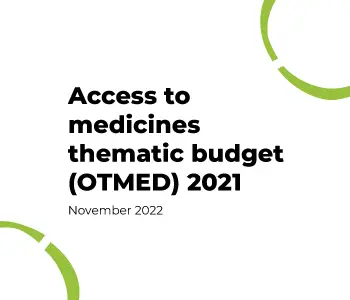The OTMED analyzes pharmaceutical assistance expenses incurred by the federal government. In 2021, this expenditure grew 33% when compared to the previous year. This increase is probably the purchase of Covid-19
vaccines. Despite the worsening of the pandemic, when we analyze the total health budget, whether considering the health function or the budget of the Ministry of Health, we see that the volume of resources invested in 2021 was similar to that of 2020.


